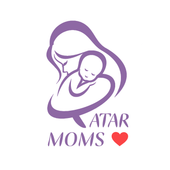Breastfeeding is a fundamental aspect of life for infants in their early stages, as it serves as the primary source of nutrition and provides emotional support, enhancing the bond between the baby and the mother. However, some infants may face difficulties with breastfeeding or refuse it entirely due to various reasons. In this article, we explore the potential causes for a baby refusing breastfeeding, whether it is natural or formula, and how to address this issue.
Causes of Newborn Breast Refusal
- Problems with Latching or Technique: Issues with latching or breastfeeding techniques, or improper positioning of the baby, can make breastfeeding difficult.
- Discomfort Due to Imbalance: An imbalance between the breast and the baby's mouth can cause discomfort, leading the baby to refuse breastfeeding.
- Breast Congestion or Nipple Infection: Breast congestion or nipple infection can cause severe pain for the mother, which may make the baby refuse the breast due to changes in milk taste or uncomfortable pressure.
- Changes in Milk Taste: Changes in the taste of milk due to the mother’s diet or hormonal fluctuations can make the baby reluctant to breastfeed.
- Health Issues in the Infant: Health issues such as ear infections, oral or gum problems, or gastrointestinal disorders can cause pain during breastfeeding, leading to refusal.
- Sudden Changes in Routine: A sudden change in the baby's daily routine, such as moving to a new environment or changing breastfeeding schedules, can lead to breastfeeding refusal.
Causes of Refusal to Bottle-Feed
- The taste of formula milk might be unfamiliar to a baby, especially if accustomed to breast milk. This taste difference can lead to a refusal of the bottle.
- If the formula does not meet the baby’s needs, such as causing allergies, intolerance to certain ingredients, or bloating, the baby may refuse to feed.
- Some babies might struggle with using the bottle or nipple, particularly if it doesn’t fit their mouth properly or causes discomfort.
- Introducing the bottle too late or inconsistently can make adaptation difficult. It often takes time for a baby to get used to the bottle as a feeding method.
- Health issues such as gastrointestinal problems, respiratory issues, low blood sugar, or infections can also affect the baby’s acceptance of the bottle.
- In some cases, psychological factors like stress, anxiety, or fear, especially if there were complications at birth or maternal stress, can impact the baby’s willingness to use the bottle.
- Rarely, unsuitable or inverted nipples may cause challenges or discomfort during breastfeeding.
- Newborns need time to coordinate sucking and swallowing, and mastering these movements can take a while
How to Handle Breastfeeding Refusal?
- Assess Health: First, rule out any potential health issues. If the baby persistently refuses to feed, consulting a doctor is essential to ensure there are no underlying health problems.
- Try Different Techniques: Mothers may need to experiment with various breastfeeding techniques, such as changing breastfeeding positions or using different nipple sizes. For bottle-feeding, trying different nipples or formula types might help.
- Monitor the Mother’s Diet: If breastfeeding is the option, monitoring the mother’s diet is important to ensure that no foods or drinks are affecting the taste of the milk.
- Be Patient: Patience is key when dealing with breastfeeding refusal. Allow the baby time to adjust and get used to breastfeeding or bottle-feeding.
- Consult a Specialist: If the problem persists, seeking advice from a lactation consultant or pediatrician can provide specialized guidance.
Refusal to breastfeed can be frustrating and concerning for parents, but understanding the causes and implementing appropriate solutions can make the breastfeeding experience smoother and support the baby’s health and development.
Discover the perfect breastfeeding solutions for your baby! Explore our range of Breast Care, Breast Messagers & Warmers, Breast Heating and Cooling Pads, & Breast Creams & Masks from Qatar Moms Store for Mom & Baby Products.
 FREE DELIVERY FOR ORDERS ABOVE 100 QAR
FREE DELIVERY FOR ORDERS ABOVE 100 QAR DELIVERY WITHIN 3 HOURS
DELIVERY WITHIN 3 HOURS APPLE PAY AND CARD PAYMENT AVAILABLE
APPLE PAY AND CARD PAYMENT AVAILABLE



